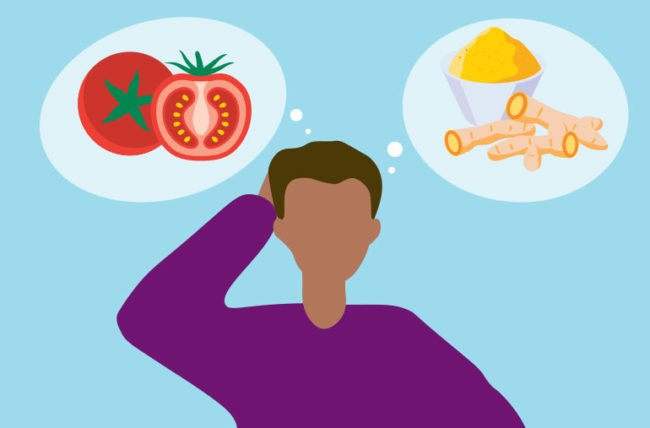Probabilities are, you do not have the same testosterone levels as your father.
The age-specific testosterone level in men has been on a steady and slow decline over the past several decades. The researchers describe the changes as “alarming” from an evolutionary perspective.
Why is this happening? Can the trend be reversed and why? We turned to endocrinologist Kevin Pantalone DO for analysis and answers.
What is low testosterone?
Let’s first understand what we are talking about. Testosterone, also known as sex hormone or androgens, is a sex hormone.
All people have testosterone in them. Dr. Pantalone notes that testosterone levels are higher in men, and those who were born male. In this group, testosterone is important for maintaining and developing:
- Sex organs and reproductive function.
- Well-being is a feeling of happiness.
- Muscle mass.
- Bone health.
- Red blood cell count
Male hypogonadism is the condition in which your testicles do not produce enough testosterone. Dr. Pantalone states that a low testosterone count (measured in your blood) is anything below 250 nanograms/deciliter (ng/dl).
The American Urology Association has set the bar at 300 ng/dl.
Are testosterone levels considered low now?
As people age, testosterone levels are expected to decrease. After age 30, the average testosterone level drops by about 1% a year.
But research continues to show that the declines are not related to ageing. These studies compare the same people in different years. For example, the same 45-year old man in 1987 and 1995, as well as 2002.
“We’re seeing testosterone levels consistently lower than what we would expect due to excessive weight and other health conditions – and this is alarming in the long term,” says Dr. Pantalone.
While there is a downward trend for testosterone levels in specific age groups, the averages are still not at the level where they fall into the “low” category.
They are getting closer each year.
Why have testosterone levels declined?
This non-age related drop in testosterone has not occurred in a vacuum, as noted. Dr. Pantalone notes that “we’re seeing a decline in the health of more people.” This may accelerate the testosterone loss compared to older generations.
Look at the factors that affect testosterone levels.
Weight
The downturn in testosterone levels coincides with higher numbers on the bathroom scale for much of the population … and that’s BMI (body Mass Index) measurements can cause stress to your body and affect the natural testosterone distribution process and production.
Physical Activity
You may also be increasing your testosterone levels if you lift weights. Strength training and high intensity interval training are proven to immediately boost testosterone levels.
Dr. Pantalone says that studies have shown testosterone levels to increase in men who exercise. If you don’t exercise regularly, you won’t get that boost.
has shown that endurance sports such as cycling and long-distance runs lower testosterone.
Physical activity is also important in maintaining a healthy body weight.
Diet
A well-balanced and nutritious diet will put your body in the best position to function at its optimal level, including testosterone production. A healthy diet will also lead to a healthy body weight.
Dr. Pantalone explains that “increased caloric consumption can lead to obesity and the cascade effect often begins.”
A number of studies have shown that low fat diets can lead to a slight decrease in testosterone. Researchers note, however, that low-fat eating is not associated with low testosterone. Don’t interpret the results to mean that you should eat high-fat foods, as this can lead to weight gain or other health problems.
Alcohol
Dr. Pantalone says that excessive and chronic drinking can reduce testosterone production. Add it to the negative effects of alcohol abuse.
Sleep
The morning is when your testosterone levels are at their highest, after your body has recharged while you slept. If your sleep is disrupted by conditions like Sleep Apnea, the process will break down.
Dr. Pantalone says that if you disturb your sleep cycle, it will disrupt the normal rhythm of your body’s testosterone production.
Toxins
You’ve probably come into contact with an EDC at some point in your life. There are over 800 EDCs in everyday plastics, and many other products.
Ongoing research is being conducted on the effects of these “environmental toxicants” on hormones like testosterone. It’s clear that EDC exposure has increased dramatically over the years.
“The environment has changed and these factors could be contributing to the decline in testosterone,” says Dr. Pantalone.
How can you boost your testosterone levels?
It’s not a big secret: focus on healthy living.
“It is normal to see a decline in testosterone with age. However, we are seeing this process accelerate in recent years due to poor health,” says Dr. Pantalone. “Actions compound the problem.”
What’s the good news? You can increase your testosterone levels by making simple lifestyle changes, such as eating healthier and exercising more. You’ll also be healthier in general.
Talk to your doctor
Most people do not know their testosterone levels. This is not a routine health screening. A person is usually assessed if they have symptoms like:
- Low sex drives.
- Chronic fatigue
- Erectile dysfunction.
Speak to your doctor to find out the cause of these symptoms. It could be low testosterone but could also be another issue.
“Get checked,” says Dr. Pantalone. It’s crucial to understand the cause of symptoms.





















